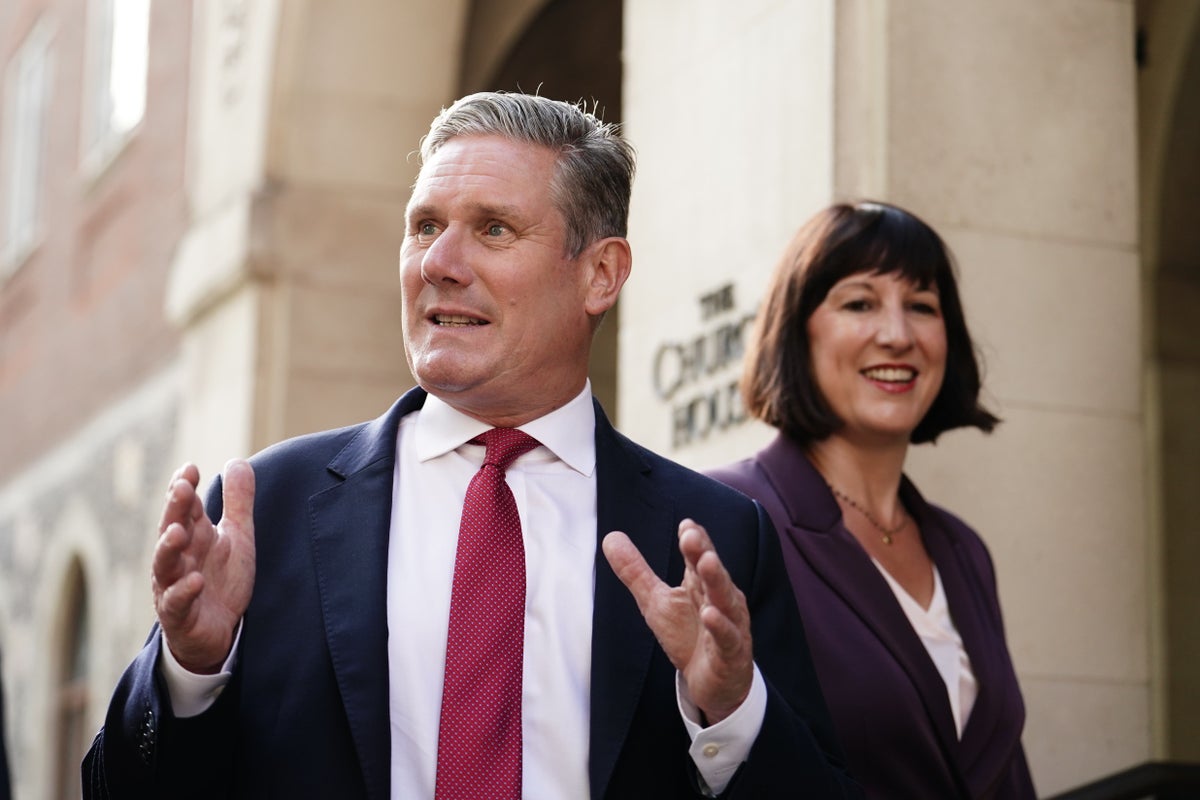
Labour has hit back after the Tories accused Keir Starmer of wanting to “unpick” Brexit if he wins the next general election.
Sir Keir said there was “no case for rejoining the EU, no case for the customs union or single market” and laws would be “made in this country for the public interest”.
But he said this “does not mean that a Labour government would lower standards on food or lower the rights that people have at work”.
It comes after the Labour leader made his boldest comments yet outlining his vision for the UK’s future relationship with the EU. Sir Keir had told a conference of leaders in Canada that he does “not want to diverge“ from the bloc’s rules on workers’ rights, food and the environment.
But his remarks drew flak from the Conservatives with Jeremy Hunt, the chancellor, saying the opposition’s stance “will worry a lot of the people who voted for Brexit”.
Sir Keir downplayed the statement as he spoke to reporters in the City of London. He said: “That’s been consistent Labour Party policy for years. Incidentally, that’s also Government policy.”
Shadow chancellor Rachel Reeves had earlier said it “shouldn’t come as a surprise” that Labour would not “dilute workers’ rights, environmental protections or food standards”. “That’s not what Labour are about,” Ms Reeves told the BBC.
She also said the Tories have not used Brexit to diverge on “food, environmental or labour standards” and “if they have a plan to do so then they should come clean”.
Rachel Reeves said it ‘shouldn’t come as a surprise’ that Labour does not want to ‘dilute workers’ rights’ (Jordan Pettitt/PA)— (PA Wire)
The row began after Sir Keir told the event in Canada: "Most of the conflict with the UK being outside of the [EU] arises in so far as the UK wants to diverge and do different things to the rest of our EU partners.
"Obviously the more we share values, the more we share a future together, the less the conflict. And actually different ways of solving problems become available.
“Actually we don’t want to diverge, we don’t want to lower standards, we don’t want to rip up environmental standards, working standards for people that work, food standards and all the rest of it.”
It came after he promised to push for an improved trading relationship with the EU if Labour forms the next government. At the same time, France and Germany were said to be pushing plans to offer Britain “associate membership” of the EU.
Asked about the comments by LBC, Mr Hunt said: “Those kinds of comments about not wanting to diverge will worry a lot of people that what he really wants to do is to unpick Brexit.
“Any suggestion that you want to align our laws and regulations with EU will worry a lot of the people who voted for Brexit.”
A spokesman said Labour would not rejoin the single market or customs union, and Britain is “not going back in any form” to the EU.
Ms Reeves added: “Because we want those high standards, we think it is easier for an incoming Labour government to get a better deal with the EU to improve trading relations.
"Because the truth is, the deal that Boris Johnson secured three years ago is not good enough and we have seen a decline in trade between the UK and other European neighbours."
After attacking Sir Keir’s position on Brexit, Mr Hunt said: “We are going to make a tremendous success of Brexit. We’ve already started to do so and there’s lots more to come.
“We want to be good friends with our neighbours across the channel.”
Some Brexiteers have argued that leaving the European Union presents an opportunity to change regulations in areas like product standards or the environment – which were previously agreed in Brussels while Britain was a member of the union.
Other voices, such as trade unions and environmentalists, have said EU rules help keep UK standards high and warned against divergence.
And business have also warned that divergence from the EU might create extra costs.
Under the Brexit deal negotiated by Boris Johnson, the UK’s rulebook will gradually diverge from the EU’s – though plans to immediately purge the statue books of all EU legislation have been abandoned by Rishi Sunak
Other approaches to Brexit, such as remaining in the single market, would require Britain to remain synced to EU rules – but would lower trade barriers compared to now.







